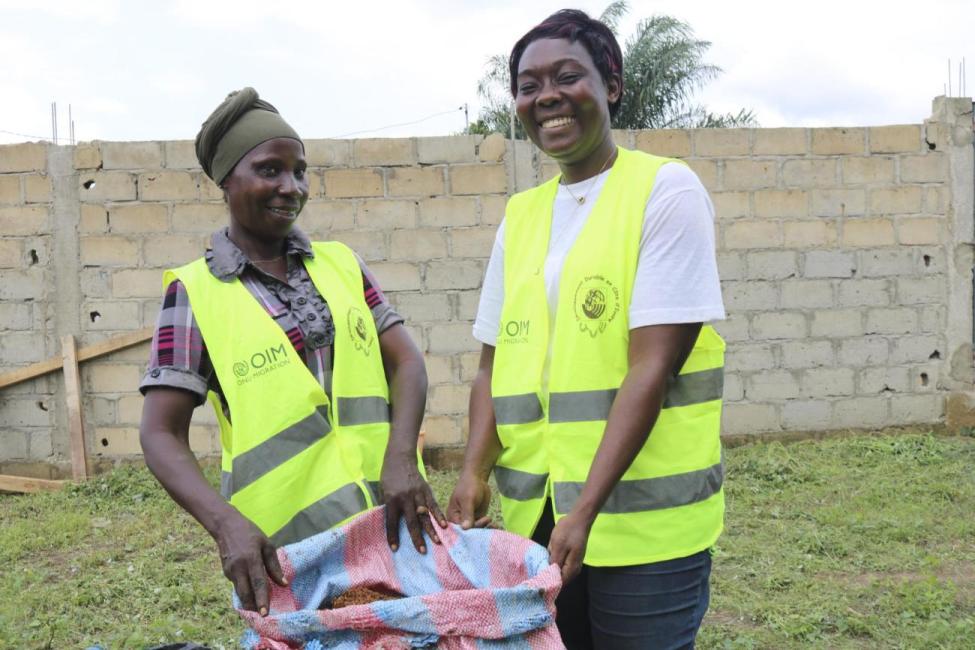-
Who We Are
WHO WE AREThe Environmental Migration Portal is a one-stop service website to promote new research, information exchange and dialogue, intended to fill the existing data, research and knowledge gaps on the migration, environment and climate change (MECC) nexus.
IOM Global
IOM Global
-
Our Work
Our WorkThe Environmental Portal aims to centralize relevant and up-to-date research, data, and information on migration, environment and climate change and
provide information on recent activities of IOM, including with its partners, in addressing the migration, environment and climate change (MECC) nexus.What we do
What we do
- Where We Work
- Data and Resources
- 2030 Agenda
Anyama, 30 May 2023 - Odette Zransieu, 50, an internal migrant worker in Anyama, in the periphery of Abidjan knows how to convince her interlocutors of the positive contribution that migrant workers can make to the resilience of communities. She looks at the situation of the hundreds of migrant workers in this peri-urban area with clarity: "If someone is holding your belly, it's because you've lost all hopes of being free", she asserts.
As a result of rampant urbanization caused by infrastructure works and the construction of new neighborhoods, urban and peri-urban agriculture in the coastal communities of Abidjan, which once flourished, is now in danger of disappearing. Coupled with the negative effects of environmental degradation, this unrestrained urbanization at the expense of agricultural land makes workers even more vulnerable.
In Anyama, migrant workers mainly rely on agriculture for a living. However, with urbanization, the regeneration and availability of arable land is becoming scarce. As a result, soil fertility is not fully restored, yields have dropped, and migrant workers are forced to use chemical inputs to boost their production, contributing in return to even more land degradation. «The pressure of urbanization and soil degradation has forced us to find alternatives if we want to continue this activity, which is our livelihood" says Odette.
In order to increase the resilience of migrant and local communities to water stress and climate change, and to strengthen the confidence of communities in local authorities and state structures, the International Organisation for Migration (IOM) is implementing the "Protection and Integration of Migrant Labour and the Environment in Urban and Peri-urban Agriculture" (MITSA) project in e periphery of Abidjan. In Anyama, the project will provide training and capacity activities to strengthen the resilience of those involved in urban and peri-urban agriculture to the consequences of climate change.
These tailored trainings will focus on Bokashi composting techniques - a composting method adapted to urban life in cities where sorting or collection of organic waste is limited. Thanks to these hands-on modules, Odette and many other migrant workers have been able to improve their crop yields and reduce chemical use.
"Land scarcity and soil degradation have reduced our opportunities to make a profit from our activities, but this project allows me to grow several crops in the same space and enrich the soil with waste. Our future is brighter", says Odette.
The project also enables migrant workers to integrate into the local community through agriculture as the apprenticeship is based on the model of companionship and peer exchanges with local communities. For Odette, working in pairs enables an exchange of skills, mutual support in training and the social integration of the migrant worker.
For further information, please contact Joëlle Furrer, Regional Media and Communications Lead jfurrer@iom.int and Hind Assaoui Bennani, Regional Specialist for the Migration, Environment and Climate Change Programme haissaoui@iom.int

